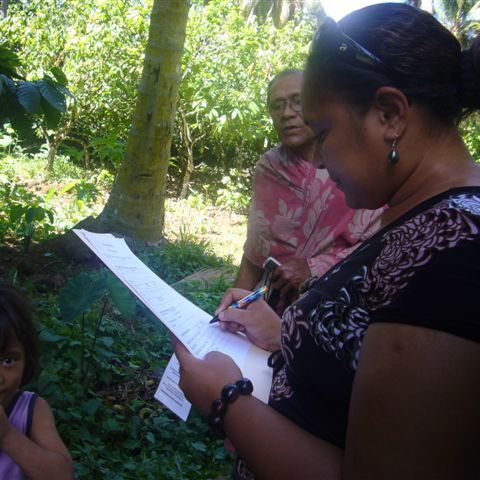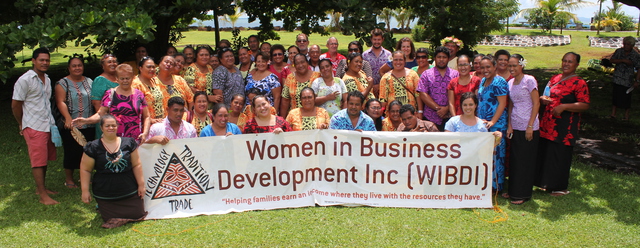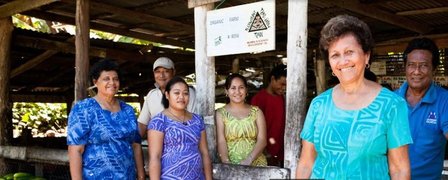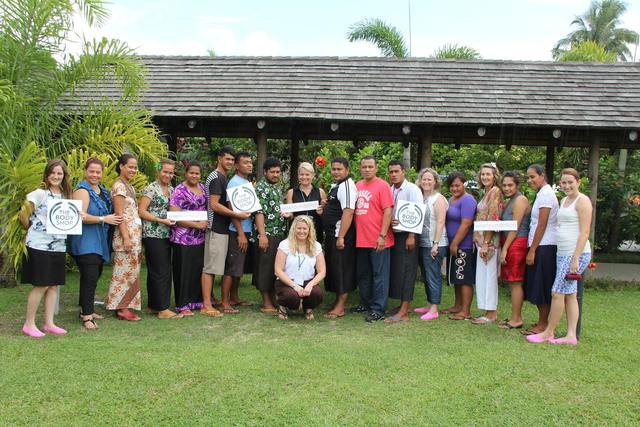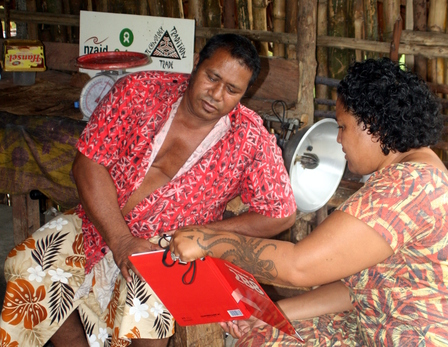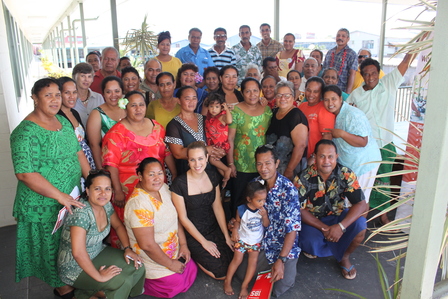A family
approach
WIBDI takes a holistic approach to all training activities. We believe families need to work together to achieve success which is why our trainings are inclusive of the entire family rather than just one individual.
Finding
opportunities
Our Small Business Training Team determines what specific business opportunities are suitable based on the village environment and bases its training on this assessment. We also try to provide participants with a deeper understanding of economics. To achieve this, WIBDI discusses the state of Samoa’s economy with farmers. These discussions highlight how small business activities in rural villages can contribute to Samoa becoming a country that is no longer dependent on foreign aid.
Training methods
The training methods used by WIBDI have been developed over many years and are adapted to suit Samoan villagers, who often live primarily within the traditional village economy and lack experience in the increasingly important cash economy. Our tutors teach from A Guide to Small Businesses, which is a course developed by the Open Polytechnic of New Zealand and commissioned by The Commonwealth of Learning and UNESCO. It has been adapted for the Samoan environment.
Our course modules include:
- Product development - What can you develop from the resources around you?
- Quality control - Keeping up to market standard.
- The market - Who can I sell to and where can I sell?
- Money - What do I need to start my business?
- Pricing - What are profit and costs.
- Budgeting - Keeping a cash flow budget.
- Communicating with people - Dealing with business people and customers?
- Time management - What time do I have for my business?
- Business Plans - Working out your business plan.
- Information and Communication Technologies - How to use phone, TV, radio and computers for your business.
Savings-linked microfinance
Women in Business promotes a scheme whereby women save a nominal amount of their income. Then later they are able to borrow up to 60 per cent of their savings. Read more …
Small-business training history
When WIBDI started small business training, a large proportion of the rural population of Samoa still lived a subsistence lifestyle even though they are part of a cash economy. In many villages it was not uncommon for people to pay for items from their local shop with coconuts or empty bottles to obtain refunds. One of the earliest partnerships formed with WIBDI was with the Small Business Enterprise Centre (SBEC). This partnership combined WIBDI’s small business training and loan program with the expertise of SBEC, training WIBDI staff to provide new livelihood opportunities to rural Samoans.
In 1997, WIBDI acquired the New Zealand Official Development Assistance-funded small business trainers, Ofaga o Tomai. This acquisition proved to be the key to ensuring loans targeted sustainable projects and provided consistent training.
